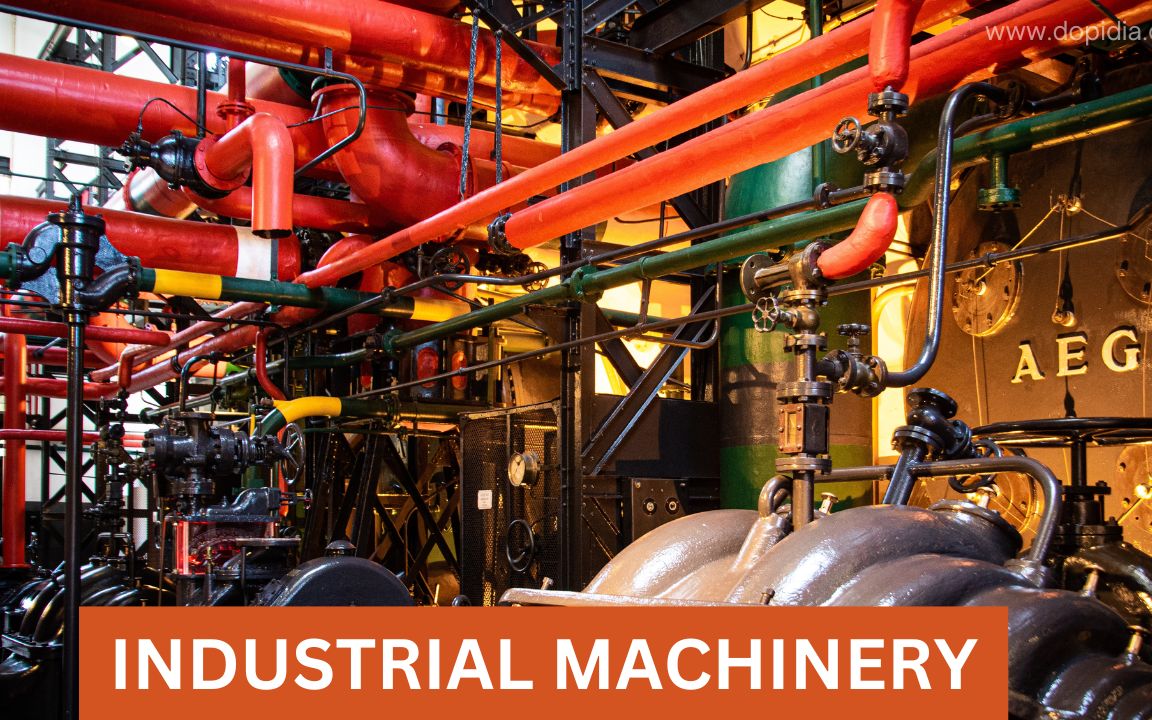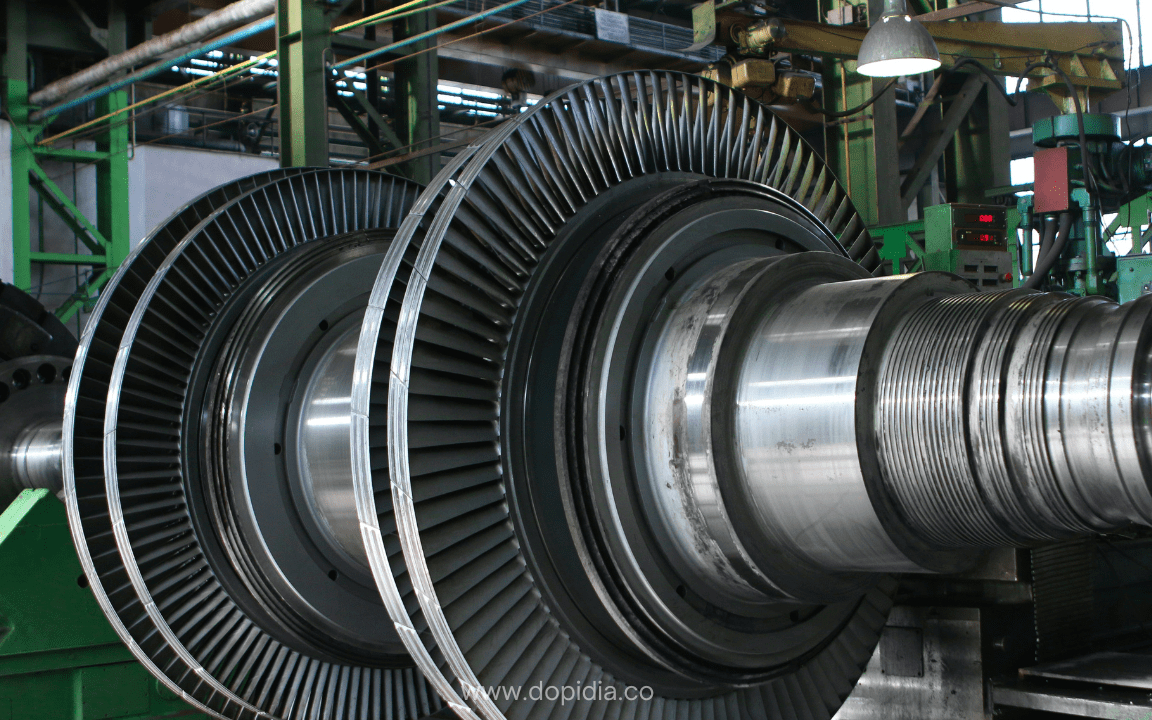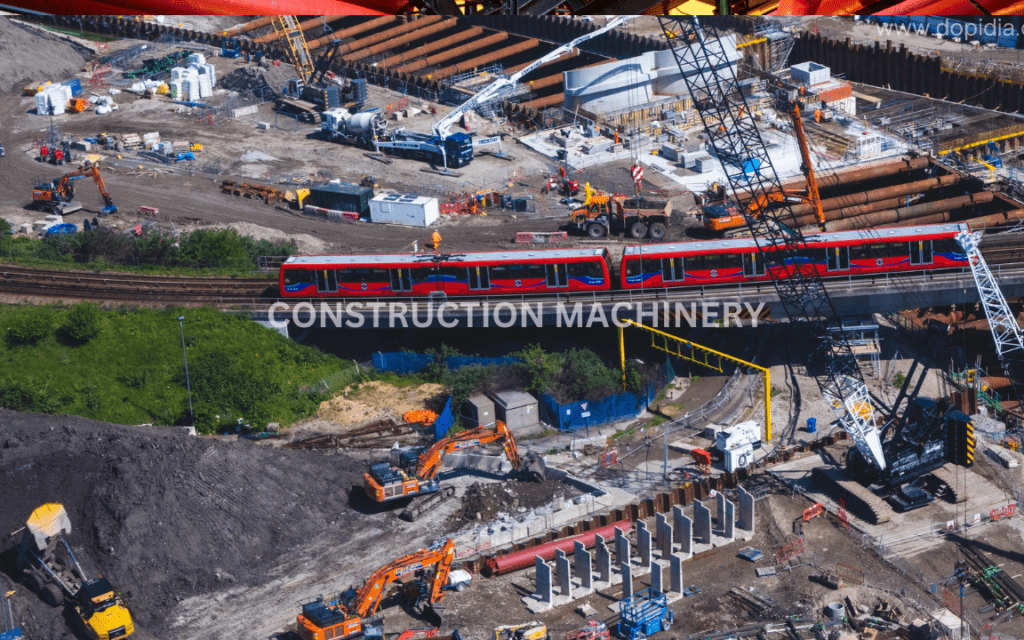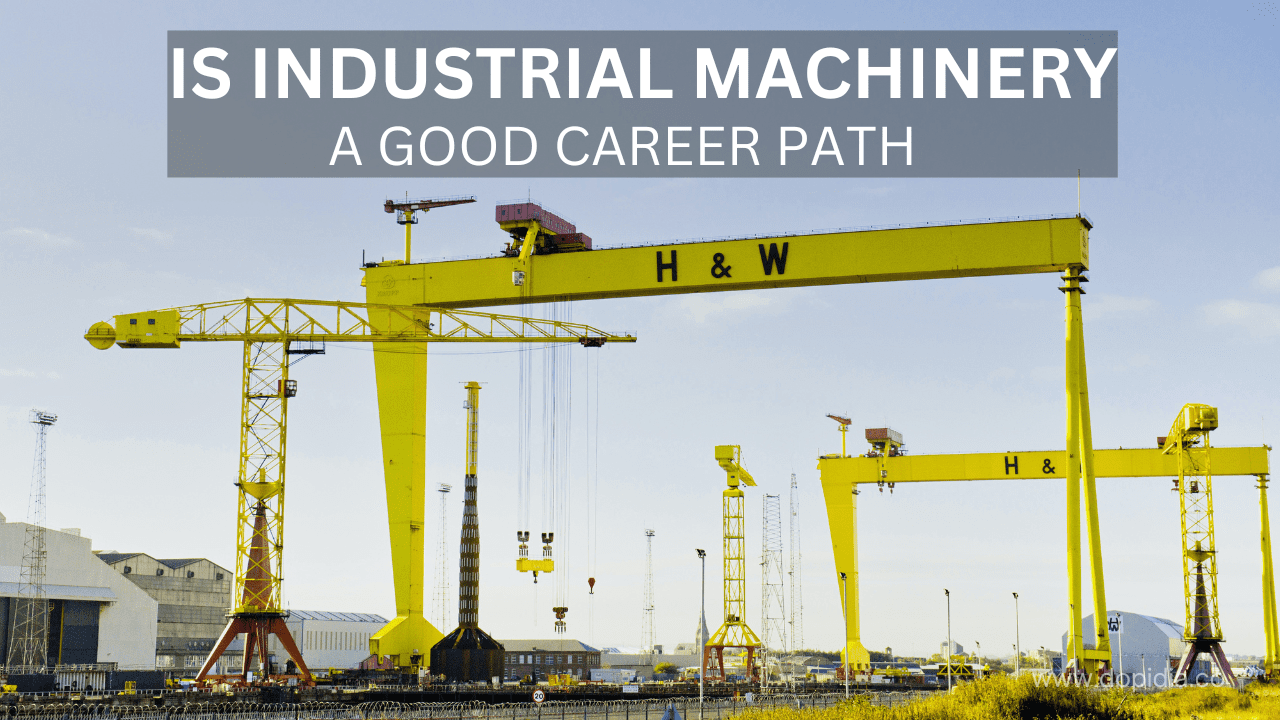Is Industrial Machinery/Components a Good Career Path
Introduction
Industrial machinery and components (IM&C) is a broad field that encompasses the design, production, installation, operation, and maintenance of machinery used in various industries. This sector is a critical driver of economic growth and technological advancement, making it an attractive career path for many. But is it a good career path? This article will delve into the various of a career in industrial machinery and components to help you make an informed decision.
What Are the Industrial Machinery/Components
Industrial machinery/components refer to various parts and equipment used in different industries for manufacturing and production processes. These components are essential for the smooth operation of industrial machinery. Here are some of the common industrial machinery/components:
- Motors: Used to power various types of industrial machinery.
- Pumps: Used to move fluids in industries such as oil and gas, water treatment, and chemical processing.
- Compressors: Used to increase the pressure of a gas in industries such as air conditioning and refrigeration.
- Bearings: Used to reduce friction between moving parts in machinery.
- Gears: Used to transmit torque and change the speed of machinery.
- Valves: Used to control the flow of fluids in various industrial processes.
- Conveyors: Used to move materials from one place to another in a factory or warehouse.
- Generators: Used to provide power in case of a power outage.
- Heat Exchangers: Used to transfer heat one medium to another.
- Hydraulic and Pneumatic Systems: Used to transmit power in machinery.
- Control Systems: Used to manage and control the operation of machinery.
- Filters: Remove impurities from fluids.
- Industrial Robots: Used to automate repetitive tasks in manufacturing processes.
- Machine Tools: Used to shape or machine metal or other rigid materials.
- Electrical Components: These include switches, relays, circuit breakers, and other components used in electrical systems.
- Seals and Gaskets: Prevent leaks in machinery.
- Fasteners: These include bolts, screws, and other components used to hold parts together.

Job Prospects and Growth
The IM is a significant contributor to the global economy, and its importance is only expected to grow in the future. According to the U.S. Bureau of Labor Statistics, employment in the industrial machinery installation, repair, and maintenance sector is projected to grow 13 % from 2016 to 2026, faster than the average for all occupations. This growth is driven by the increasing demand for advanced machinery in various industries, including manufacturing, construction, and energy.
Moreover, the advent of Industry 4.0, characterized by the integration of digital technologies like artificial intelligence,, and the Internet of Things (IoT) into industrial processes, is creating new job opportunities in the IM&C sector. Professionals with skills in these areas are likely to be in high demand in the coming years.
The Importance of Industrial Machinery/Components
Industrial machinery/components are the backbone of modern industries. They enable efficient production, automation, and innovation in various sectors. Without these machines and components, industries would struggle to meet the demands of a competitive market. From assembly lines to robotics, industrial machinery/components contribute to increased productivity, quality control, and cost-effectiveness.
Job Opportunities in Industrial Machinery/Components
The field of industrial machinery/components offers a wide range of job opportunities. As technology continues to advance, the demand for skilled professionals in this field is on the rise. Some of the key job roles in this industry include:
- Industrial machinery technician
- Mechanical engineer
- Maintenance technician
- Quality control inspector
- Production supervisor
- Automation specialist
- Sales representative
- Project manager
Salary and Benefits
Salaries in the IM&C sector can vary widely depending on the specific job role, level of experience, and geographical location. However, on average, they tend to be competitive with other industries. For instance, according to PayScale, the average salary for an industrial machinery mechanic in the United States is around $52,000 per year.
In addition to monetary compensation, careers in the IM&C sector often come with other benefits such as health insurance, retirement plans, and opportunities for continuous learning and professional development.
Skills and Education
A career in the IM&C sector typically requires a strong foundation in science, technology,, and mathematics (STEM). Depending on the specific job role, a bachelor’s degree in mechanical engineering, electrical engineering, or a related field be required. However, there are also many roles in the sector that require vocational training or an associate degree, such as industrial machinery mechanics or maintenance technicians.
Advantages of Pursuing a Career in Industrial Machinery/Components
- Job stability: With industries relying heavily on machinery and components, the demand for skilled professionals remains steady.
- Competitive salaries: Careers in industrial machinery/components often come with attractive compensation packages due to the specialized nature of the work.
- Opportunities for growth: As you gain experience and expertise, there are ample opportunities for career advancement and higher-level positions.
- Variety of industries: Industrial machinery/components professionals can work in various industries, allowing for versatility and exposure to different sectors.
- Innovation and technological advancements: The field of industrial machinery/components is at the forefront of technological innovation. By pursuing a career in this field, you can be part of groundbreaking advancements and contribute to shaping the future of industries.
- Hands-on work: If you enjoy working with your hands and solving practical challenges, a career in industrial machinery/components can be fulfilling. It involves working directly with machines, components, and systems, allowing you to see the tangible results of your efforts.
- Global opportunities: These are needed worldwide. This opens up opportunities for professionals to work in different countries and explore diverse cultural and professional environments.
Career Diversity and Mobility
The IM&C sector is incredibly diverse, offering a wide range of roles in various industries. Whether you’re interested in designing new machinery, installing and maintaining equipment, or managing production processes, there’s likely a role that suits your interests and skills. This diversity also means that there are plenty of opportunities for career progression and mobility. For instance, an industrial machinery mechanic might progress to a supervisory role or move into a related area like quality control or safety management.

Global Opportunities
The IM&C sector is not confined to a specific geographical location. It spans across the globe, providing machinery and components to various industries worldwide. This global reach offers professionals in the field opportunities to work in different countries and cultures. can be enriching both personally and professionally, a broader perspective and enhancing one’s adaptability and cross-cultural communication skills.
Moreover, working in different markets can provide a deeper understanding of the global industrial machinery landscape, which can be a valuable asset in this increasingly globalized world.
Challenges and How to Overcome Them
Like any career, a career in the IM&C sector comes with its own set of challenges. The work can be physically demanding, requiring strength and stamina. The risk of injury can be higher than in some other professions due to the nature of the machinery and tools used. Moreover, the work can sometimes involve exposure to noise, heat, and dust.
However, these challenges can be mitigated with proper safety training and adherence to safety protocols. Many companies in the IM&C sector invest heavily in safety training and equipment to protect their employees. Moreover, technological advancements are reducing the physical demands of many jobs in the sector, with tasks increasingly being automated or assisted by machinery.
Another challenge can be the need for continuous learning and upskilling. This sector is constantly evolving, with new technologies and processes being introduced regularly.
However, this can also be seen as an opportunity. Continuous learning can be stimulating and rewarding, and many employers in the IM&C sector support their employees’ professional development through training programs and opportunities to gain new certifications.
Largest Industrial Machinery Manufacturers Globally
Some of the largest industrial machinery manufacturers globally would be:
- Caterpillar – They are the world’s largest manufacturer of construction and mining equipment, diesel and natural gas engines, industrial gas turbines and diesel-electric locomotives.
- Deere & Company – They are a major manufacturer of agricultural, construction, and forestry machinery, diesel engines, drivetrains used in heavy equipment, and lawn care equipment.
- CNH Industrial – They own several major industrial brands including Case Construction, New Holland Agriculture, Iveco, FPT Industrial, and Steyr. They are a major manufacturer of agricultural and construction equipment, trucks, commercial vehicles, buses, and powertrain solutions.
- Komatsu – They are a Japanese multinational corporation that manufactures construction, mining, forestry, and military equipment, as well as industrial equipment like press machines, lasers, and thermoelectric generators.
- • Hitachi Construction Machinery – They are also a Japanese multinational that manufactures construction equipment like hydraulic excavators, wheel loaders, dump trucks, cranes, etc.
- Liebherr – A Swiss-German company that produces a wide range of construction equipment like cranes, excavators, haulers, concrete mixers, etc. They are also a major manufacturer of aerospace parts and household appliances.
- Volvo Construction Equipment – A subsidiary of Volvo Group and one of the world’s largest manufacturers of construction equipment like excavators, wheel loaders, articulated haulers, road machinery, etc.
- Doosan Infracore – A South Korean company that produces construction equipment, engines, compressors, heavy equipment, and machine tools. They own the Bobcat Company, a major compact equipment manufacturer.
- Kubota – A Japanese company that manufactures a wide range of machinery and equipment including tractors, combine harvesters, rice transplants, lawn mowers, utility vehicles, construction equipment, engines, and water pumps.

Conclusion : Is Industrial Machinery/Components A Good Career Path?
In conclusion, a career in industrial machinery/components can be a good path for those with a passion for mechanics, problem-solving, and technological advancements. The field offers job stability, competitive salaries, opportunities for growth, and the chance to be part of innovative projects. However, it is important to note that the field also comes with challenges such as continuous learning and high-pressure situations. With the right skills, qualifications, and dedication to professional development, you can thrive in this dynamic and rewarding career.
FAQs (Frequently Asked Questions)
- Q: What are some entry-level positions in the industrial machinery/components field? A: Entry-level positions may include industrial machinery technician, maintenance technician, or quality control inspector.
- Q: Do I need a degree to work in this field? A: While a degree can provide a strong foundation, technical training programs and apprenticeships can also lead to successful careers in industrial machinery/components.
- Q: What industries can I work in with a career in industrial machinery/components? A: Industrial machinery/components professionals can find opportunities in industries such as manufacturing, construction, automotive, aerospace, and more.
- Q: How important is continuous learning in this field? A: Continuous learning is essential in keeping up with technological advancements and staying competitive in the industry.
- Q: Are there opportunities for career advancement in the field? A: Yes, with experience and expertise, you can progress into senior roles, specialization, management positions, or even start your own business in the field of industrial machinery/components.




Pingback: Is Transportation A Good Career Path -
Pingback: Is Basic Industries a Good Career Path - Helpful Knowledge
Pingback: How Many Jobs Are Available in Basic Industries -